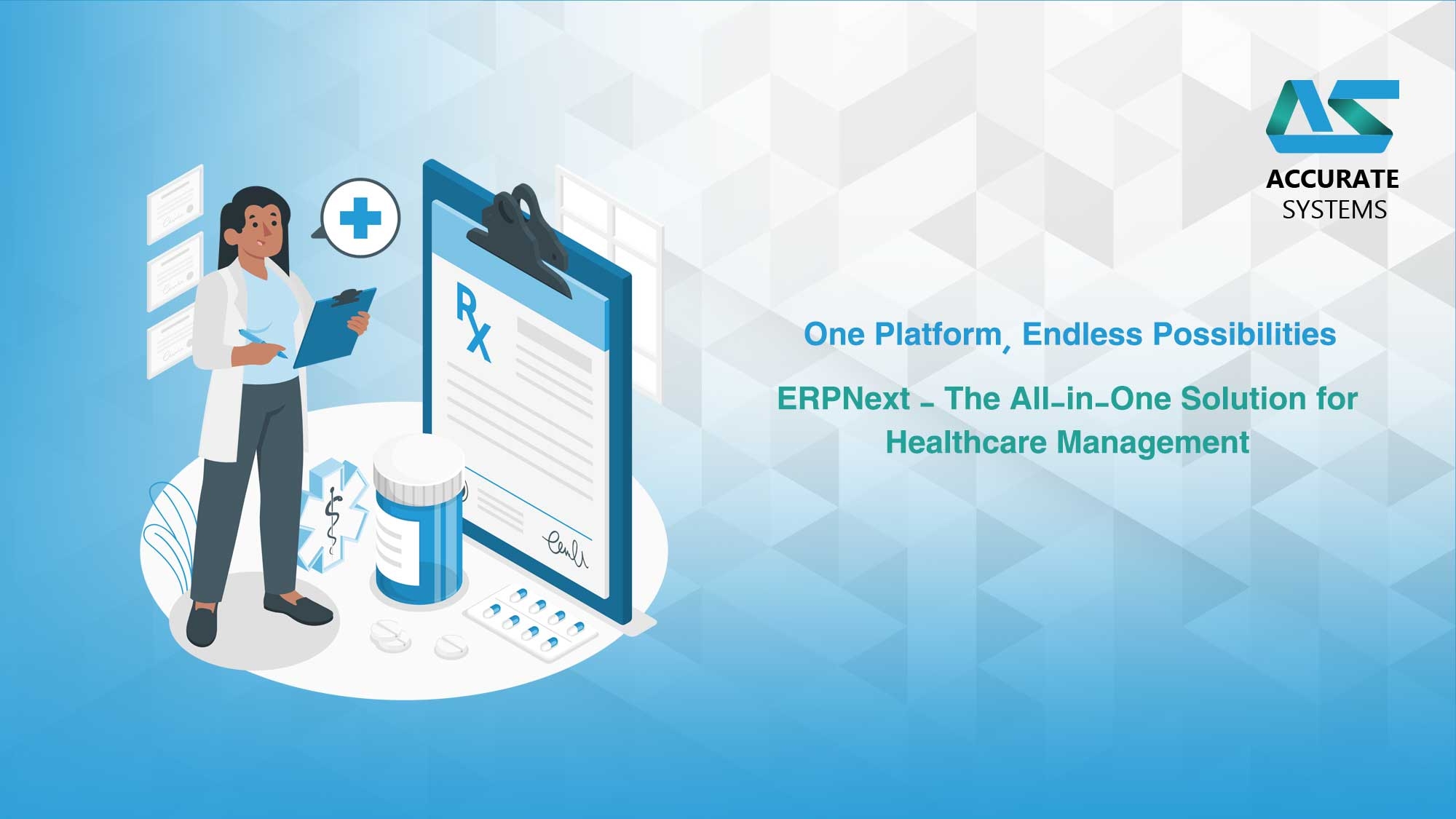The healthcare industry is undergoing a significant digital transformation, with healthcare institutions constantly seeking ways to improve efficiency, streamline workflows, and deliver better patient care. ERPNext, an open-source Enterprise Resource Planning (ERP) software, is emerging as a powerful tool for healthcare management, offering a comprehensive and integrated solution to address various challenges faced by the industry.
Key Features of ERPNext for Healthcare Management:
-
Unified Platform:
ERPNext integrates various healthcare functionalities into a single platform, eliminating the need for multiple disparate systems. This centralized approach streamlines data management, improves accessibility, and facilitates better collaboration between different departments.
-
Patient Management:
ERPNext offers comprehensive patient management features, including patient registration, appointment scheduling, electronic health records (EHR), and billing. This enables healthcare providers to efficiently manage patient information, track medical history, and provide personalized care.
-
Appointment Scheduling and Clinical Management:
The software streamlines appointment booking, allowing patients to schedule appointments online and manage them conveniently. It also facilitates clinical documentation, recording patient encounters, diagnoses, medications, and treatment plans electronically.
-
Inventory Management:
ERPNext helps manage medical supplies, pharmaceuticals, and equipment effectively. It tracks inventory levels, triggers automatic reordering when stocks reach a minimum threshold, and ensures efficient stock control.
-
Financial Management:
The integrated financial management system streamlines billing, invoicing, and insurance claims processing. It provides real-time financial insights, enabling healthcare institutions to make informed financial decisions.
-
Reporting and Analytics:
ERPNext offers robust reporting and analytics capabilities, generating insightful reports on various aspects of healthcare operations. This allows institutions to monitor key performance indicators (KPIs), identify areas for improvement, and make data-driven decisions.
Benefits of using ERPNext for Healthcare Management:
-
Improved Efficiency:
By automating tasks and integrating workflows, ERPNext reduces manual work, saving time and resources for healthcare professionals.
-
Enhanced Patient Care:
Streamlined patient management, improved access to medical records, and efficient communication lead to better patient care and satisfaction.
-
Cost Reduction:
Reduced administrative costs, improved inventory control, and efficient billing processes contribute to significant cost savings for healthcare institutions.
-
Increased Revenue:
Streamlined billing and faster claims processing lead to improved cash flow and potential revenue growth.
-
Data Security and Compliance:
ERPNext adheres to data security regulations and provides robust access control mechanisms to ensure patient data privacy and compliance with healthcare regulations.
Challenges and Considerations:
-
Implementation Complexity:
Implementing ERPNext requires careful planning, customization, and training for staff, which can be challenging for some healthcare institutions.
-
Data Migration:
Transitioning from existing systems to ERPNext requires efficient data migration strategies to ensure data integrity and minimize disruptions.
-
Technical Expertise:
While ERPNext is relatively user-friendly, some level of technical expertise may be required for customization and ongoing maintenance.
Conclusion:
ERPNext offers a compelling solution for healthcare management, addressing critical challenges and transforming operational efficiency, patient care, and financial performance. However, careful consideration of implementation complexities, data migration strategies, and the need for technical expertise is crucial for successful adoption. Overall, ERPNext presents a promising avenue for healthcare institutions seeking to embrace digital transformation and achieve operational excellence.


